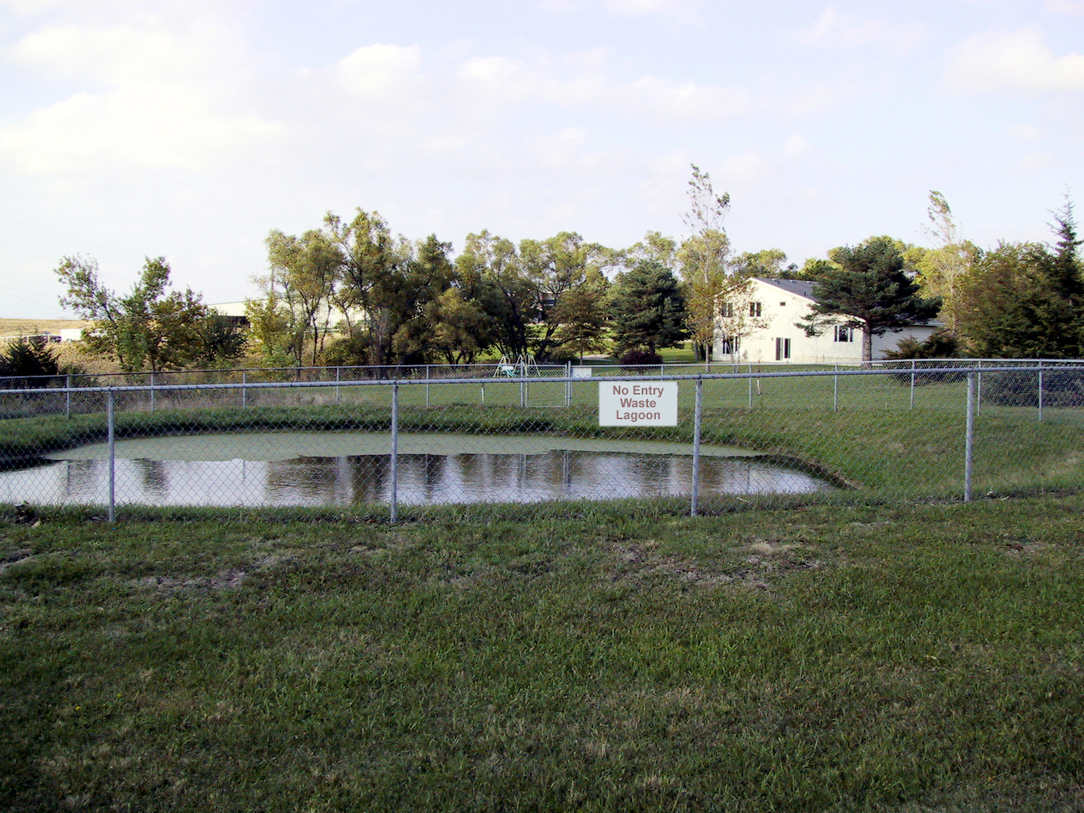
By Meghan Sittler, Extension Educator
The arrival of warm weather and sunshine brings a flurry of activity around your property. Annual plantings are blooming and the mowing season is in full swing. All of those things are done annually to maintain homes and yards. If you have a wastewater lagoon, maintenance of your property should also include inspection and maintenance of your wastewater lagoon.
Lagoons “turnover” usually twice per year. You may notice this turnover by a change in color of the lagoon or a day or two of slight odor. The turnover usually lasts only several days and indicates the lagoon is functioning properly. If you notice the color change or odor persisting that means there may be issues with the lagoon.
Often those issues can be prevented through regular inspection and proper maintenance of the lagoon. Below are periodic operation and maintenance items to complete and things to look for when inspecting your lagoon:
• Regularly check that grass covering the lagoon berm remains between 3–6 inches to prevent shading and allow airflow through the lagoon. Mowing needs to be done to keep grass under 6 inches.
• Make sure trees, shrubs or other plants are at least 50 feet from the lagoon berm to maintain good airflow and sun exposure in the lagoon. This also ensures the roots will not damage the integrity of the berm.
• Check your lagoon for signs of duckweed, cattails, reeds, undesirable types of algae or other vegetation that doesn’t belong. If any of those are present, take steps to mechanically or chemically remove them sooner than later.
• Make sure the fence around your lagoon does not have gaps or holes that could allow wildlife or small children into the lagoon. Also check that your gate latches and locks securely.
• Use bleach or other disinfectants sparingly in your home to limit potential to harm good bacteria within the lagoon.
• Do not pour grease, cooking fats, chemical drain openers, paints, solvents, fuels, oil, pesticides or other chemicals down the drain in your home.
Spending some time regularly to look for potential issues can make your maintenance efforts pay off in both time and money savings down the road. Also, you and your wastewater lagoon are part of the effort to protect our important water resources, wildlife and the health and safety of your family.
FOR MORE INFORMATION
Nebraska Extension has numerous resources on lagoons and other wastewater systems at http:/water.unl.edu.